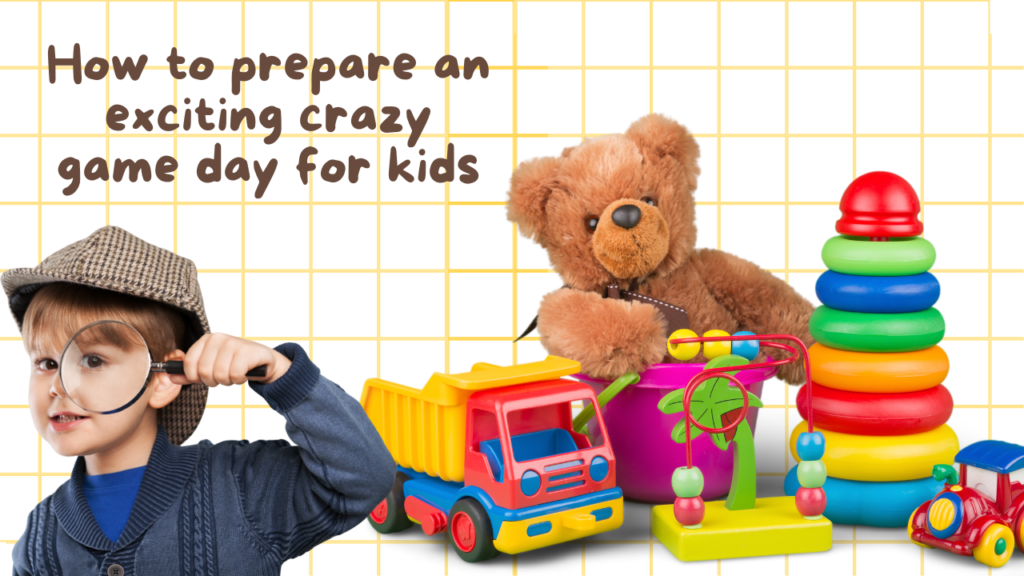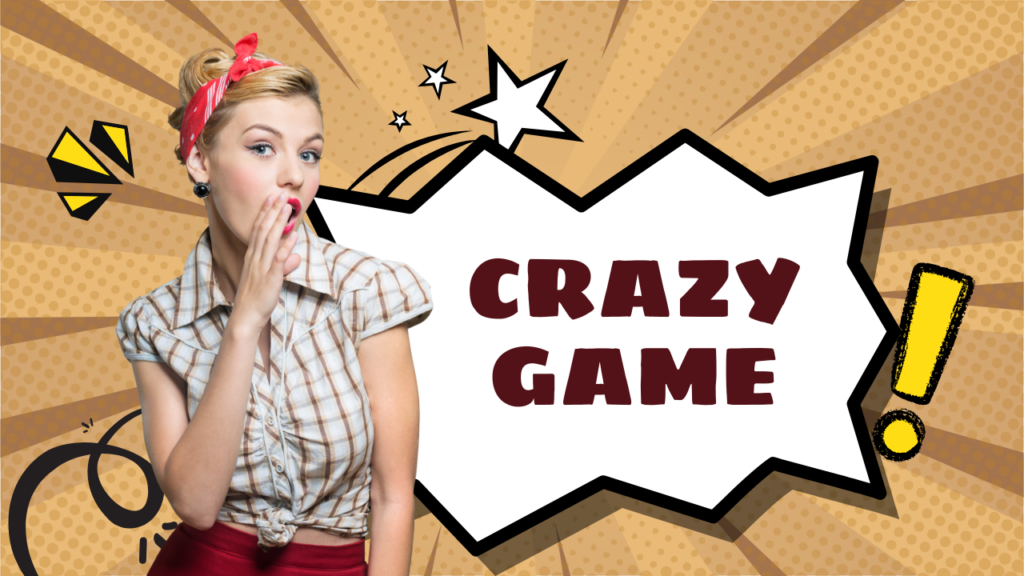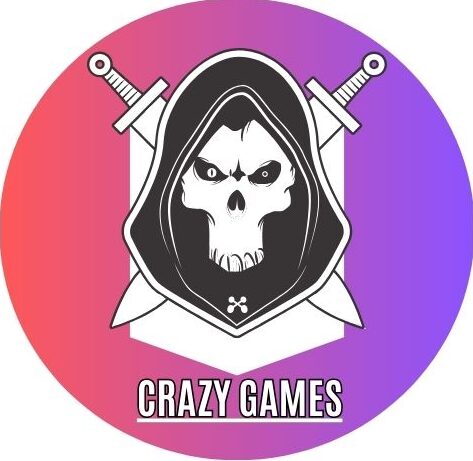Table of Contents
Introduction
The preparation of game day for kids can be quite a pretty fun and rewarding thing for both parents and the children, too. One of the chances of collecting energy, creativity and enthusiasm from some young minds in one place and offering them a fun-filled day of games, challenges, and of course loads of fun. However, planning a successful “crazy” game day is very challenging; when trying to balance all the varieties that are supposed to entertain children of different ages and interests, the task becomes very hectic.

1. Designate a theme for the day
The games, activities, and logistics all revolve around a theme before you get down into the nitty-gritty of details. Choosing a theme gets the kids really excited about their event. When you have the right theme for the day’s activities, that day of fun is enhanced. Here are some fun ideas for themes that you can look at.
Superhero Day: Let them dress up like their favorite superheroes and plan activities like an obstacle course, crime-fighting games, or team-building games.
Pirate Adventure: Plan a treasure hunt or scavenger hunt with pirate challenges where the children have to solve riddles and read maps to find lost treasures.
Sports Olympics: If your kids are sportsy, an Olympics-themed game day is great. Set up different stations of games like relay races, soccer, or tug-of-war.
Carnival Fun: Picture this arcade games, acrobats performing silly acts, face painting, and juggling.
From firsthand experience, a superhero-themed game day based on the theme of my son was a huge success. We came up with a “secret mission” for each one, and they had to finish tasks like “defeat the villain” that could be a balloon-popping game and “rescue the hostages” that is a fun rope-and-obstacle course. Impossible to forget were their faces lighting up when their tasks are done!
2. Select the Right Games and Activities
Once you have your theme, it is time to pick out games and activities that match. The best game days balance excitement with creativity, ensuring that there’s something for everyone. Remember the age group of the children and their preferences. Here are some game ideas, divided by themes:
a. Superhero Day Game Ideas
Hero Training Course: Create a mini obstacle course in which the kids would have to train to be superheroes that might involve crawling under the tables, leaping over obstacles, or crossing beams
Superpower Relay Races: Divide the kids into teams and give them different superhero power, for example, flying super strength, or invisibility; they work out challenges related to those powers.
Villain Chase: One child is the villain and the rest must tag the villain. The villain can escape into “safe zones” (pre-defined areas).
b. Pirate Adventure Game Ideas
Treasure Hunt: Organize a treasure hunt by preparing treasure maps that take them to clues and eventually find the hidden treasure. The whole process can be divided into solving puzzles and completing the treasure hunt with their peers. You could hide “gold coins” of chocolate coins while following the trail.
Cannonball Toss: Place buckets or containers as “cannonballs.” Kids can throw soft balls or bean bags into them. The higher the accuracy on their part, the more their points are.
Walking the Plank: Put a plank or a very long wooden thing in front of them. Tell them to walk across it without falling off. Add goofy challenges like being a pirate or carrying a “treasure chest” (a small box).
c. Sport Olympics Game Activities
Tug of War: Divide the children into two teams. Find out which team is stronger by having a friendly tug-of-war contest. Use a long rope.
Relay Races: Organize traditional relay races with differences, such as hopping on one foot or running while balancing a ball. The baton can be passed with a spoon too.
Balloon Pop Challenge: Tie balloons to each child’s ankle, then have them all run around, trying to pop each other’s balloons while they protect their own.
d. Circus Fun Game Ideas
Ring Toss: Set up the classic carnival ring toss with plastic rings and bottles or cans, and let them compete to see who gets the most rings on the bottles.
Tossing Game: Show the kids how to toss scarves or soft balls around and have a goofy tossing contest to see who can toss for the longest time.
Face Painting and Costume Contest: Bring face paints and costumes and have the kids transform into circus performers. Later, have a mini “parade” and have a mini costume contest.
One time we did a circus-themed game day, and I even set up the ring toss in our backyard, using brightly colored bottles and plastic hoops. So popular did this become that nearly every game of ring toss became competitive in nature, where kids fought against each other, and for sweet rewards – some candy or prizes – the attraction was made stronger. It definitely hit all the right spots because the kids would come back repeatedly.
3. Event Flow Planning
Once you have your games, it is now time to plan the flow of the day. Kids have so much energy; however, if they do not have a structured schedule, they will get overwhelmed or bored. Here is a simple guide on how to plan the event:
Greeting and Ice Breakers 15–20 minutes: Welcome them all and say a few words about the theme. Attempt at an ice breaker like “name game” or “superhero poses” to put everyone in a good mood
Game Rounds 30-40 minutes per game: Plan time segments based on number of games. Rotate kids in different game stations every 30 minutes to maintain participant energy levels, so everyone will have a go at each one.
Snack Break 15-20 minutes After all that excitement for games, this is a really good time to treat the kids with a snack, perhaps fruits and granola or small sandwiches. Drink is a good accompaniment, but there’s always room for water and especially when having it outside.
4. Ready All the Essentials
A good game day always has all these supplies in tow. So, here’s the checklist of possible supplies needed for this purpose:
Equipment to play games: Balls, hoops, cones, ropes, balloons, or other paraphernalia for the respective games.
Snacks and drinks: Healthy snacks that are easy to consume and water bottles or juice boxes.
Prizes and giveaways: Small toys, medals, ribbons, or candies to be handed out in case someone plays or wins.
• Music: Some playlist for energetic songs to keep things lively. Background music can keep kids pumped even between games.
• Costumes: For themed days, make sure there are costumes or accessories (like capes or pirate hats) to help the kids get into character.

5. Safety First
Game days are nice, but not at the expense of losing the kids while enjoying the excitement. Always pay attention to where the kids go, especially where physical activities have taken place. Here are some tips to get through the day without a hitch.
Check the Venue. If the occasion is outdoors, inspect the venue with possible hazards to look out for such as knives and uneven surface.
Hydration: Be sure that there are enough water stations set so that the kids are drinking, thus staying hydrated, especially during hot weather.
Breathing breaks: Make sure they get constant breaks so that they do not get exhausted, hence cooling down.
Allergies and Medical Conditions: Note all known allergies and health issues with their emergency phone numbers for possible reactions.
6. Get the Kids Involved in the Planning
One of the best ways to ensure that the kids are fully invested in the Game Day is to involve them in the planning process. While you’ll be organizing the overall structure, let them contribute their own game ideas and suggestions.
Involve Them in the Theme Selection: A day or two before the main event, ask the kids to vote on the theme or give them a few options for them to choose from. This will help them to have ownership and get excited.
Let Them Create a Game: In case older kids are attending the party, let them come up with one of the games. Of course, this implies stimulation of creativity and team work. Suppose they are fans of some movie or cartoon; then they can create one game based on that character.
I remember a birthday party with my daughter in which she invented her own game called “The Magical Potion Challenge.” She was supposed to mix different-colored liquids (which were simply juices) in order to obtain a “magical potion.” She was proud of this invention, and so were the other kids!
7. Decorations and Ambiance
Creating the right atmosphere is a key part of making the Game Day exciting. Once you’ve chosen a theme, take the time to decorate the space accordingly. Decorations not only set the mood but also immerse the kids in the experience.
Super Hero Day: Hang up comics or posters of comic book superheroes, create a backdrop with the superhero city skyline, and make use of capes for the kids. You could also add some props in the form of “pow” and “bam” signs.
Pirate Adventure: There is not too much that one needs to do to turn into a pirate ship with cardboard and ropes, besides having a pirate flag. One can also be well prepared with a “captain’s wheel” for photos.
Sports Olympics: Medals, banners, flags of countries, and what more, awesome mini world cup vibe
Circus Fun: Hang streamers, balloons, and carnival booths with fun signs.
Do not forget the music. A fun playlist that fits the theme is sure to get the kids dancing and makes the day feel that much more special.
8. DIY Crafts and Keepsakes
Other creative works of craft include other things to keep the children occupied and can take home as souvenirs of the activity. These activities keep them away from all physical games and provide them with an opportunity to express themselves.
Superhero Day: Allow them to make masks or capes. Materials available include colored felt, markers, and stickers that can personalize them.
Pirate Fun: Let them make their very own pirate hat or treasure chest. They might decorate small, wooden boxes, or cardboard bins to store the “treasure.”
Olympic Games: Set up a DIY medal or trophy section. Cardboard, paint and some ribbons might be all needed for simple medals.
The Circus: Create a face paint station or allow them to become their own performer with fabric marker, sequins, or whatever.
These arts and crafts can help the kids relax and also give them something to remember the day by.
9. Consider Their Dietary Restrictions and Preferences
A successful Game Day is not only about the activities but also ensuring that the kids are fed and energized. However, a group of kids usually comprises different dietary needs and preferences, so planning your snacks and meals should take this into account.
Healthy Snacks: Fresh fruit platter, granola bars, veggie sticks with a dip, yogurt cups, and popcorn.
Allergy-Free Options: Be sure to be mindful of food allergies present in children due to nuts, dairy, or gluten. Before the event, ask parents what their child cannot have and plan for an alternative snack.
Drink Stations: Provide a dedicated drink station where water, fruit juices, and smoothies are available. Dehydration makes kids irritable and lazy, so many options are encouraged.
I ensure that at my Game Day, the children will have the chance to get their fruit smoothies at one stall, by mixing their desired fruits and toppings for them to enjoy. Everyone liked this and stayed hydrated and recharged to move on to the next level of the game.
10. Sustaining the Level of Energy and Break
As fantastic as game days sound, there should be an overall awareness of energy levels throughout the day. Kids get just as easy to decide to go from being hyped up to being totally exhausted. Activities need to be penciled in to space them out.
Scheduled Breaks: Schedule breaks between games. This may keep burnout down a little by allotting 5 minutes off every 30 minutes of active games.
Relaxation Zone: A “chill out” corner with pillows, bean bags, or blankets could be a place where the kids would be allowed to take a rest when they felt exhausted and needed just a few quiet minutes.
Outdoor vs. Indoor: If the game day will be held outdoors, there must be a shaded area or an indoor space for kids to cool off. When the game day will be indoors, ensure good air circulation and a quiet area where kids can cool off.
Personally, when I hosted a Game Day with some active and some quiet activities, I realized that kids like to have some place to sit and rest between games, so they didn’t lose too much energy in preparation for some more energetic tasks later in the day.
11. Dealing with Unexpected Problems
Things rarely turn out the way you thought they would. It could be a sudden rainstorm or even a child refusing to play games. Here’s what you can do about some of those unpredictable challenges:
Weather Issues: If the event is outdoors and it starts raining, then you can move the games inside if that is possible for your building. You can bring out the classics: board games, trivia, or even a talent show.
Shy or Reluctant Players: Some children are shy and do not want to play certain games. Have something else ready for them to do at all times, such as a craft or puzzle.
Spilled Treats or Messes: Kids are messy; spillage is going to happen sometimes. Keep a sufficient supply of napkins, paper towels, or baby wipes on hand.
On a Game Day with a pirate theme, one small incident: a child grew uncomfortable with the obstacle course. We quickly diverted them into a quieter game, which was a bit more relaxing for them and included them without the pressure.

FAQs
Q: For which age is the game best?
A: The game days can be molded for any age group. You could have games such as ring toss or obstacle courses for smaller children (3-6 years), and add the more demanding tasks like scavenger hunts or relay races for the older ones (7-12 years).
Q: How many kids do I invite?
A: It depends on your space and how you are able to handle the group. The good rule of thumb would be to keep it small—you are looking at 6 to 10 kids for smaller spaces, and up to 15 to 20 if you have enough space and extra help.
Q: What if some kids aren’t interested in the games?
A: Some kids prefer less noisy games. Create a quiet area where they can use coloring books, jigsaw puzzles, or board games like “Guess Who?”.
Q: Can we have an indoor game day?
A: Yes! You can hold a fun indoor game day that concentrates on games which do not need much space to play with like board games, trivia, and even mini treasure hunts.
Conclusion
Planning a crazy game day for kids can be one of the most rewarding and enjoyable experiences you’ll ever have. By picking the right theme, games, and supplies, and organizing the day carefully, you’ll create lasting memories for the kids and yourself. Remember, the goal is to have fun, foster creativity, and let the kids be as wild and adventurous as they want!

